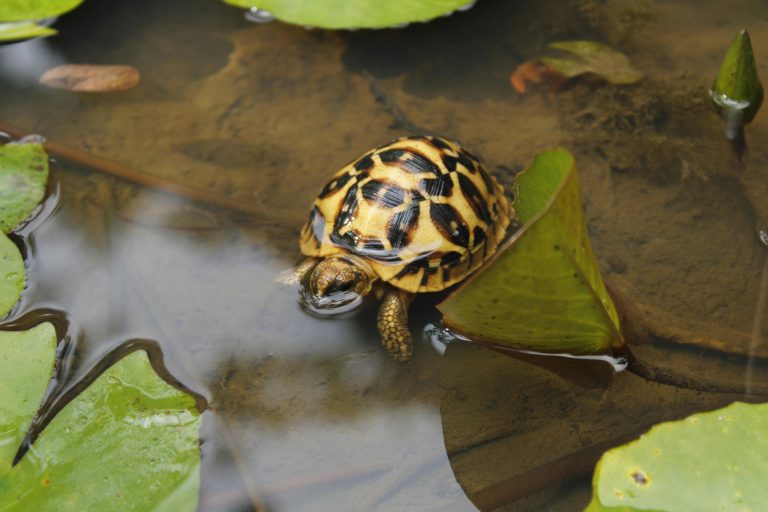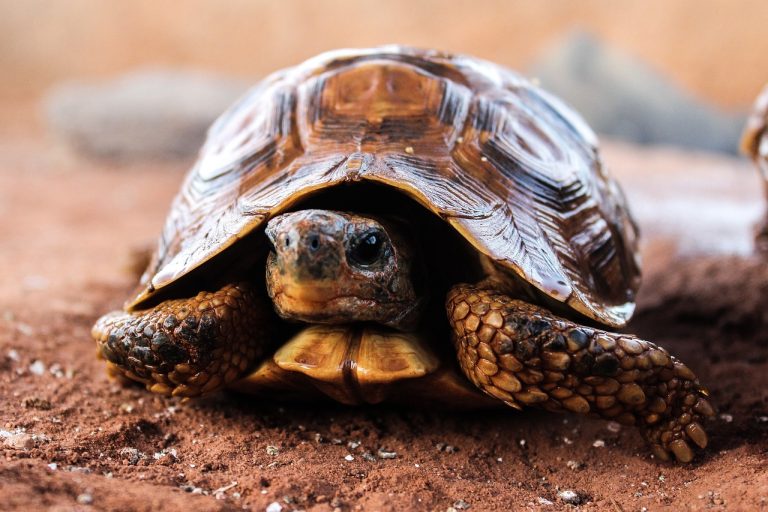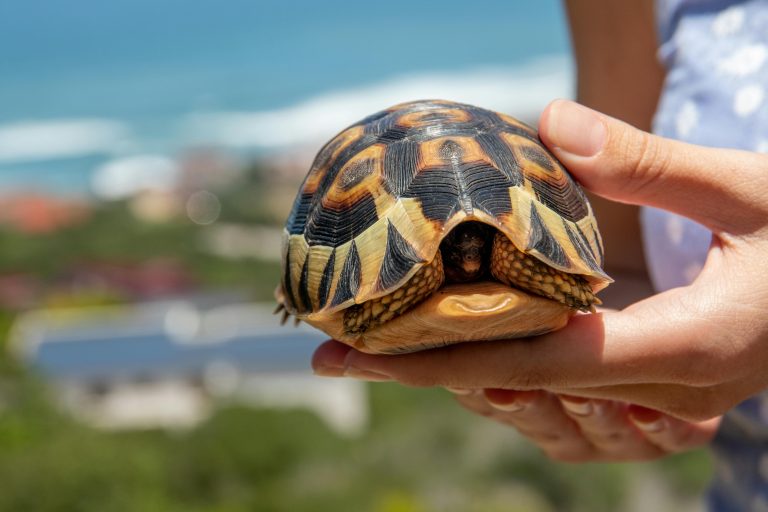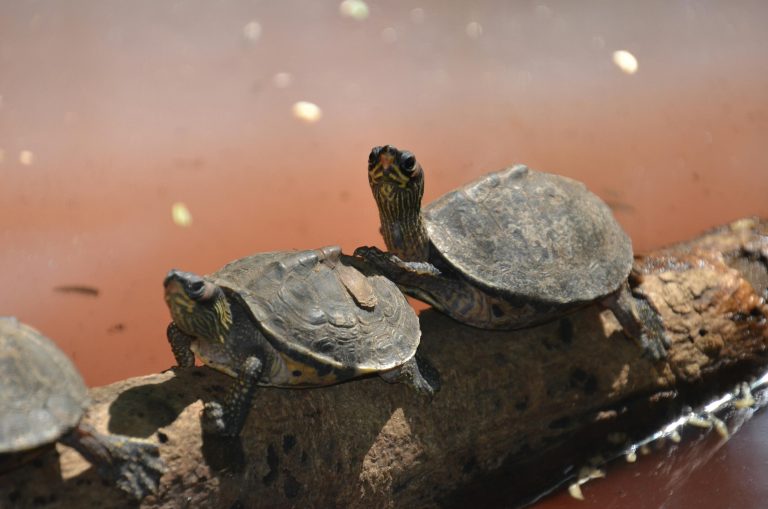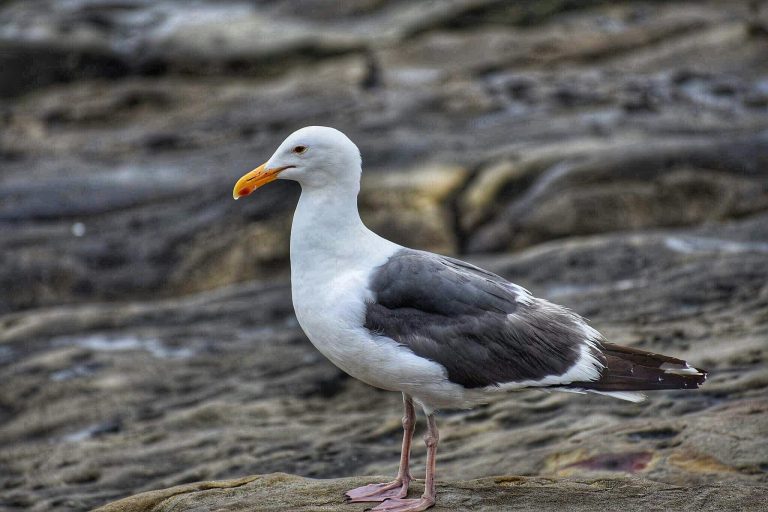The Top 6 Smallest Tortoise Species For Your Home
Considering starting your tortoise-keeping journey? Opting for a small tortoise can be a fantastic choice, especially if you’re concerned about managing outdoor space or seeking ease of care. Here are six small tortoise breeds that stay compact forever:
- Egyptian Tortoise: Expected Size – 3 to 5 inches
- Pancake Tortoise: Expected Size – 6 to 7 inches
- Russian Tortoise: Expected Size – 5 to 10 inches
- Hermann’s Tortoise: Expected Size – 5 to 11 inches
- Greek Tortoise: Expected Size – 5 to 11 inches
- Indian Star Tortoise: Expected Size – 5 to 15 inches
These diminutive tortoise breeds offer all the joys of tortoise ownership without the need for extensive outdoor space and with minimal care requirements. They’re perfect companions for tortoise enthusiasts looking for a smaller-scale pet experience.
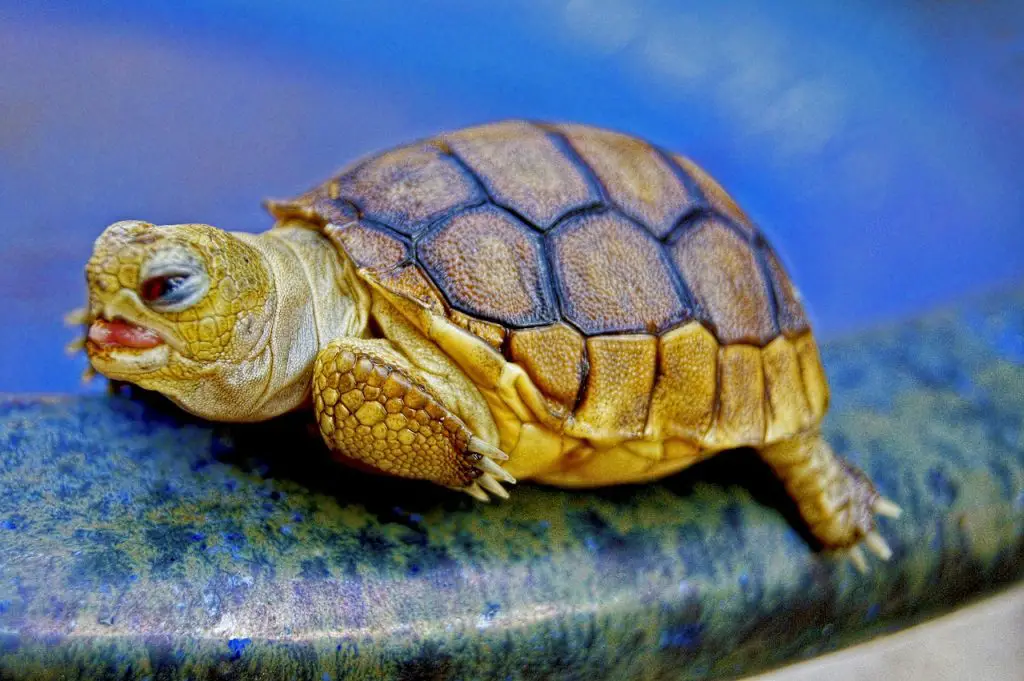
Find more on these small tortoise breeds below.
6 Small Tortoises That Stay Small Forever!
Choosing a tortoise as a pet is a significant decision, one that shouldn’t be solely based on cuteness. It’s crucial to delve into the overall profile of each breed, including their care requirements. Here’s a brief care guide for each of the small tortoise breeds mentioned:
1. Egyptian Tortoise
- Care Level: Beginner
- Habitat Size: Minimum 2 by 2 square feet
- Temperature: Basking temperature 90 – 95°F, ambient temperature 70 – 80°F, humidity 20 – 30%
- Diet: Herbivorous, eats grass, hay, vegetables, and occasional insects
- Reproduction: Sexual maturity at 5 years, nesting season July to December, lay 1 – 5 eggs per clutch
2. Pancake Tortoise
- Care Level: Beginner
- Habitat Size: 40-gallon tank or 2 by 2 square feet enclosure
- Temperature: Basking temperature 108°F, ambient temperature 70 – 80°F, humidity at least 50%
- Diet: Dry grass, succulent vegetables, other veggies, and fruits
- Reproduction: Sexual maturity 5 – 9 years, breeding season January to February, lay 1 – 2 eggs per clutch
3. Russian Tortoise
- Care Level: Beginner
- Habitat Size: 50-gallon tank for young, upgrade as they grow
- Temperature: Basking temperature 90 – 100°F, ambient temperature 85 – 88°F daytime, 75 – 80°F night, humidity 40 – 75%
- Diet: Grass, green leafy vegetables, hay, and fruits
- Reproduction: Sexual maturity at 10 years, breeding season May to June, lay 2 – 6 eggs per clutch
4. Hermann’s Tortoise
- Care Level: Beginner
- Habitat Size: Minimum 2 by 4 square feet, larger for adults over 8/9 inches
- Temperature: Basking temperature 90 – 95°F, ambient temperature 60 – 85°F, humidity 40 – 60%
- Diet: Grasses, leafy vegetables, hay, vegetables, and fruits
- Reproduction: Sexual maturity at 12 years, breeding season May to July, lay 1 – 9 eggs per clutch
5. Greek Tortoise
- Care Level: Beginner
- Habitat Size: 3 by 6 square feet for smaller tortoises, larger as they grow
- Temperature: Basking temperature 95°F, ambient temperature 75 – 90°F daytime, 65°F night, humidity 40 – 60%
- Diet: High-fiber, low-protein diet including vegetables, grass, and hay
- Reproduction: Sexual maturity at 3 – 6 inches carapace length, breeding season May to July, lay 3 – 4 eggs per clutch
6. Indian Star Tortoise
- Care Level: Beginner
- Habitat Size: Minimum 55-gallon tank, increase as they grow
- Temperature: Basking temperature 90 – 95°F, air temperature mid-80s, humidity 70 – 80% for babies and juveniles, 40 – 75% for adults
- Diet: Herbivorous, grass, weeds, vegetables, and hay
- Reproduction: Sexual maturity at 6 – 12 years, breeding season summer, nest from December to February, lay 5 – 7 eggs per clutch
These care guides offer valuable insights into the specific needs of each tortoise breed, ensuring that potential owners are well-prepared to provide proper care and attention. Remember, responsible pet ownership starts with thorough research and understanding of the needs of the animal.
Do Small Tortoises Make Better Pets?
Small tortoises indeed make excellent pets, offering a host of benefits over their larger counterparts. Here’s why they’re often preferred:
- Space Management: Small tortoises alleviate the struggle of managing space, especially for city dwellers. Unlike larger tortoises that require substantial enclosures as they grow, small tortoises can comfortably reside in smaller habitats throughout their lives.
- Cost-Effective Enclosures: With smaller space requirements, the cost of setting up and maintaining enclosures for small tortoises is significantly lower compared to that of giant tortoises. A modest-sized pen, such as a 4 by 4 square feet setup, suffices for small tortoises.
- Indoor Setup: Small tortoises offer the flexibility of indoor housing, making them ideal for apartment living. Unlike large tortoises that necessitate outdoor space, small tortoises can thrive in a corner of your home.
- Ease of Handling: Managing a massive 36-inch tortoise can be quite challenging. However, smaller tortoises, typically measuring 8 to 10 inches, are a breeze to handle. Observing and interacting with these petite pets is a joyous experience.
- Lower Appetite: Small tortoises have modest appetites compared to their larger counterparts. This translates to savings on food expenses, making them more economical to care for.
While small tortoises boast numerous advantages, there are some considerations to bear in mind. They may be vulnerable to accidental injuries from playful interactions with babies or other pets in the household. Additionally, small tortoises can be relatively more expensive and harder to find compared to larger species.
Despite these minor drawbacks, the benefits of keeping small tortoises as pets far outweigh the disadvantages. For beginners embarking on their tortoise-keeping journey, opting for a small tortoise is undoubtedly a wise choice.
What Is The Smallest Tortoise?
Speckled Cape tortoises, also known as Speckled tortoises or Speckled Padlopers, hold the distinction of being the smallest tortoise species globally. These diminutive creatures typically reach a maximum length of 3.9 inches. Interestingly, male Speckled tortoises sport a concave belly, while females exhibit a smaller carapace length.
Native to South Africa and South Namibia, these tortoises have captivated the interest of enthusiasts seeking exotic pets. However, attempts at domestication have proven challenging. Speckled tortoises struggle to adapt to captive environments and dietary regimens, making them unsuitable candidates for pet ownership. As such, conservation efforts prioritize allowing this species to flourish in their natural habitats rather than attempting domestication.
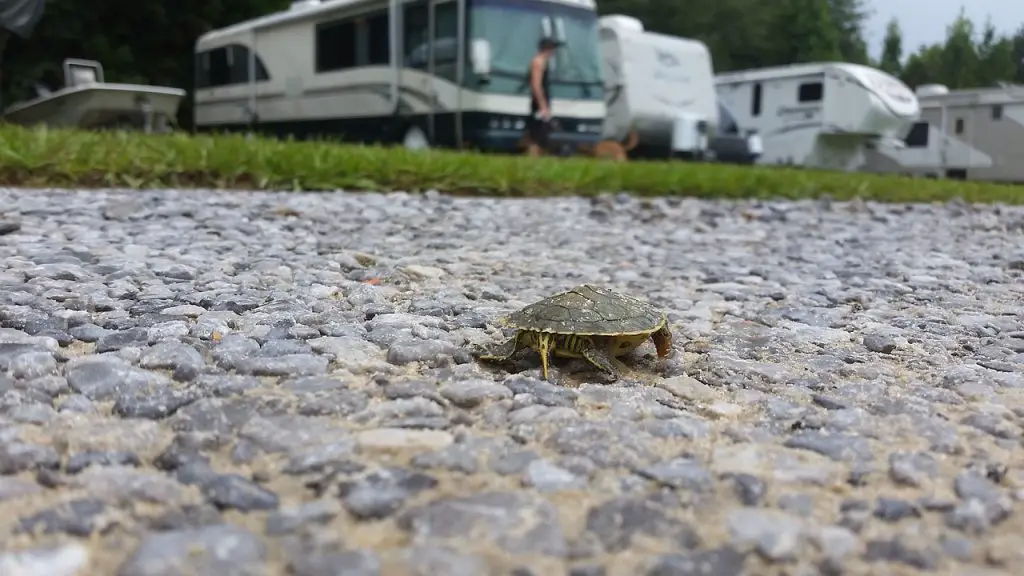
How Long Do Mini Tortoises Live?
You can’t pinpoint the exact longevity of mini tortoises as it varies based on factors like species, environment, and care provided. For instance, Pancake tortoises typically live up to 30 years, while Greek tortoises can enjoy a remarkable lifespan of up to 200 years. Each species has its own unique lifespan, influenced by various factors throughout their lives.
![Chicken Turtle Care For Beginners [Comprehensive Handbook]](https://spreadhapiness.com/wp-content/uploads/2024/04/chicken-turtle-4-768x509.jpg)
